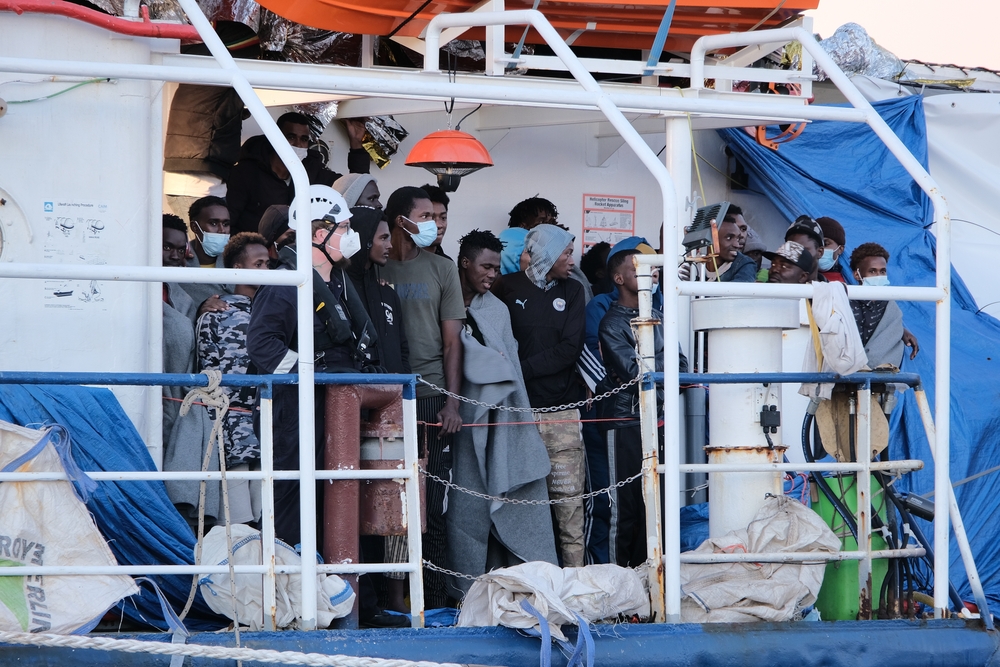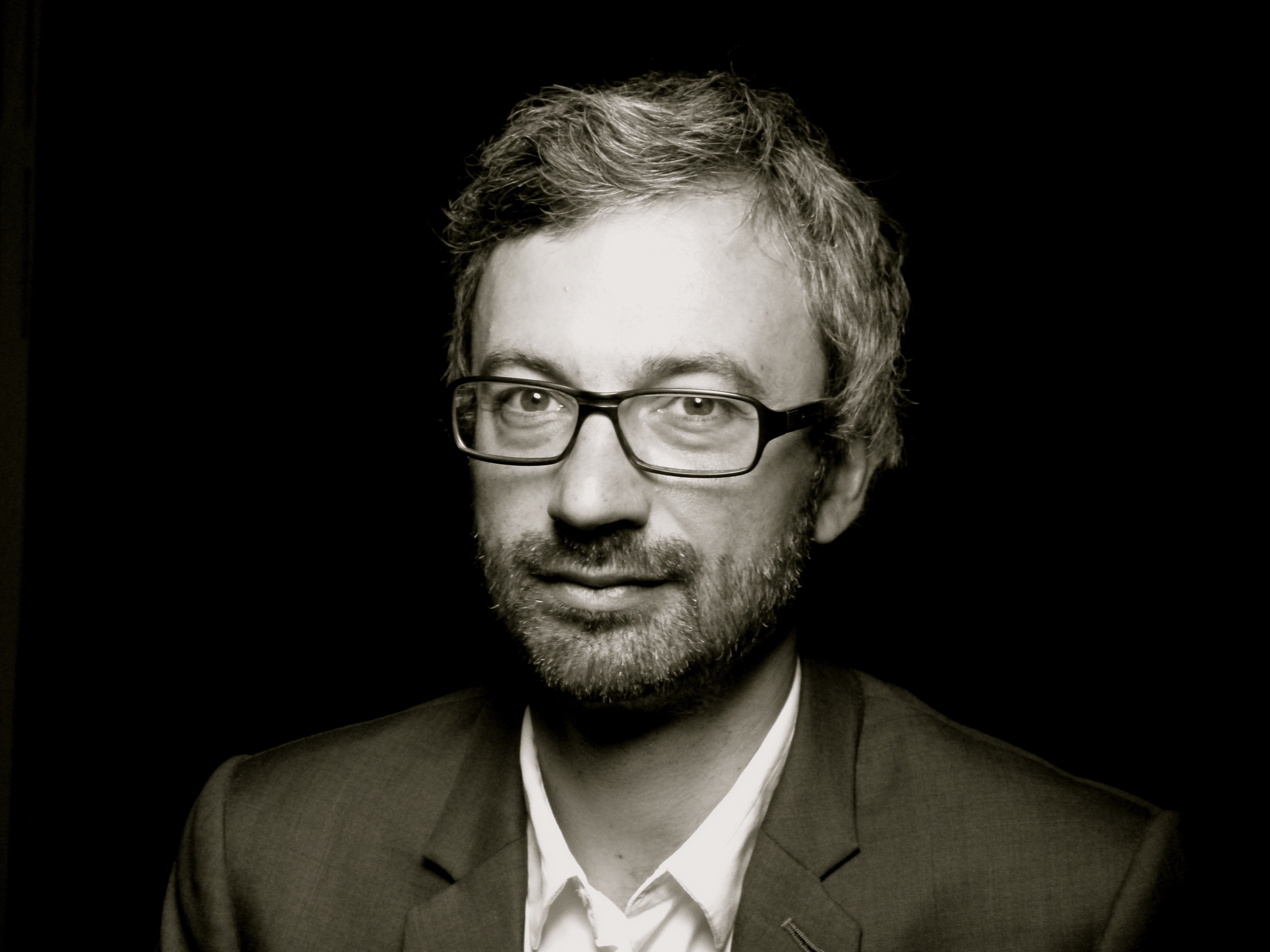Migrants rescued in the Mediterranean: What does international law say?
After several days of diplomatic wrangling with Italy, France decided to 'exceptionally' allow the humanitarian ship Ocean Viking to dock. While maritime law requires the rescue of migrants in danger, it does not state which country should welcome them.

The diplomatic arm-wrestling between Paris and Rome over the fate of the 234 migrants on board the Ocean Viking finally ended on Thursday, November 10. French Interior Minister Gérald Darmanin announced at midday that the port of Toulon would "exceptionally" allow the last of the four humanitarian boats stuck in the Mediterranean to dock on Friday.
The Ocean Viking successfully docked on Friday morning. Mr. Darmanin added that one-third of the passengers – all refugees from Libya – will be"relocated" to France while those who do not meet the criteria for asylum seekers "will be immediately deported."
The ship of the NGO SOS Méditerranée had previously asked Italy to be allowed to disembark 43 times – in vain. On Tuesday, it headed to France. At first, the executive power ruled out any possibility of docking, sending Italy back to its responsibility. "The European rule is that the boat must disembark in the nearest port, which is an Italian port," French Finance and Economy Minister Bruno Le Maire declared on French TV on Thursday morning.
The day before, government spokesperson Olivier Véran had already asked Italy to "respect its European commitments" by allowing the Ocean Viking to dock. "The boat is currently in Italian territorial waters, there are extremely clear European rules that have been accepted by the Italians," said Mr. Véran, characterizing Rome's attitude as "unacceptable." On Tuesday, the new Italian executive, led by council president Giorgia Meloni (far-right), had talked of the ship's arrival in France as a certainty. The announcement, denied by Paris, was aimed at changing the French position.
[...]
No clear and sustainable European mechanism
Docked in Catania (Sicily) since Sunday, the humanitarian ships "Geo Barents" of Doctors without Borders (MSF) and "Humanity 1" of the German NGO SOS Humanity were finally able to disembark all their passengers on Tuesday. Initially, the Italian authorities had only accepted minors and sick people. Italian foreign minister Antonio Tajani confirmed on Wednesday that the division was a sign to force Europe to help Italy.
"By refusing to allow the Ocean Viking to dock, Italy is clearly rejecting an agreement that is actually favorable to it" IFRI's Matthieu Tardis
"The blocking maneuvers on the part of Giorgia Meloni's government are aimed at demonstrating its hard line on immigration," was how Matthieu Tardis, head of the Center for Migration and Citizenship at the French Institute of International Relations (IFRI), interpreted the situation He recalled a similar situation in the summer of 2018, in which Europe opposed Italy.
France and the far-right government of Matteo Salvini had notably clashed over the "Aquarius," the former ship of SOS Méditerranée, which finally disembarked in Valencia (Spain) in June. France, for its part, refused to accept the boat. At the time, Emmanuel Macron said he did not want to give in to the "provocations of the extremists" and considered that such a scenario was "not sustainable, even politically, in France for the sake of our own balance."
In fact, the disembarkation of migrants from humanitarian ships is almost inevitably the subject of tense negotiations between states about their final allocation. On the European level, the subject of the relocation of asylum seekers has poisoned debate since 2015 and the so-called "refugee crisis." At the time, the European Commission proposed that all member countries should welcome refugees in a spirit of solidarity. However, central European states blocked the process.
In the absence of a clear and sustainable European mechanism, agreements are reached on a case-by-case basis. "In June, in the wake of the French presidency [of the European Union (EU)], things moved forward slightly. An agreement was reached on the relocation of asylum seekers arriving at Mediterranean states (Italy, Cyprus, Greece, Spain, Malta) to other member states which volunteer to accept them," Mr. Tardis explained. This mechanism is for a renewable period of one year and is not legally binding. However, countries that do not wish to receive new migrants must provide financial assistance to those who do.
For Mr. Tardis, "by refusing to receive the Ocean Viking, Italy is clearly rejecting an agreement that is actually favorable to it," although it is not very practical. For the time being, 13 countries have committed to receiving 8,000 people, including 3,000 for Germany and 3,000 for France, to relieve the countries of first entry to Europe. In fact, according to the European Commission, Germany took in 74 in October, and France 38 at the end of August.
Mr. Tardis regards Rome's attitude as "a populist response by the Meloni government to satisfy its electorate."
> Read the article on website of Le Monde (english)

Media:
Share






